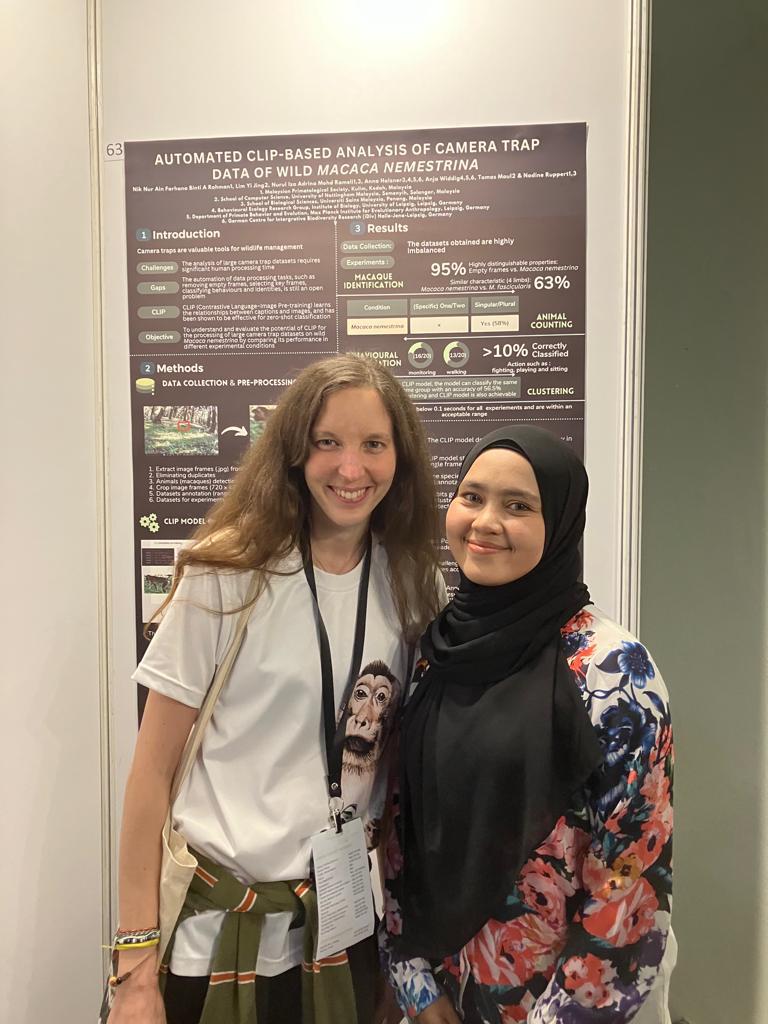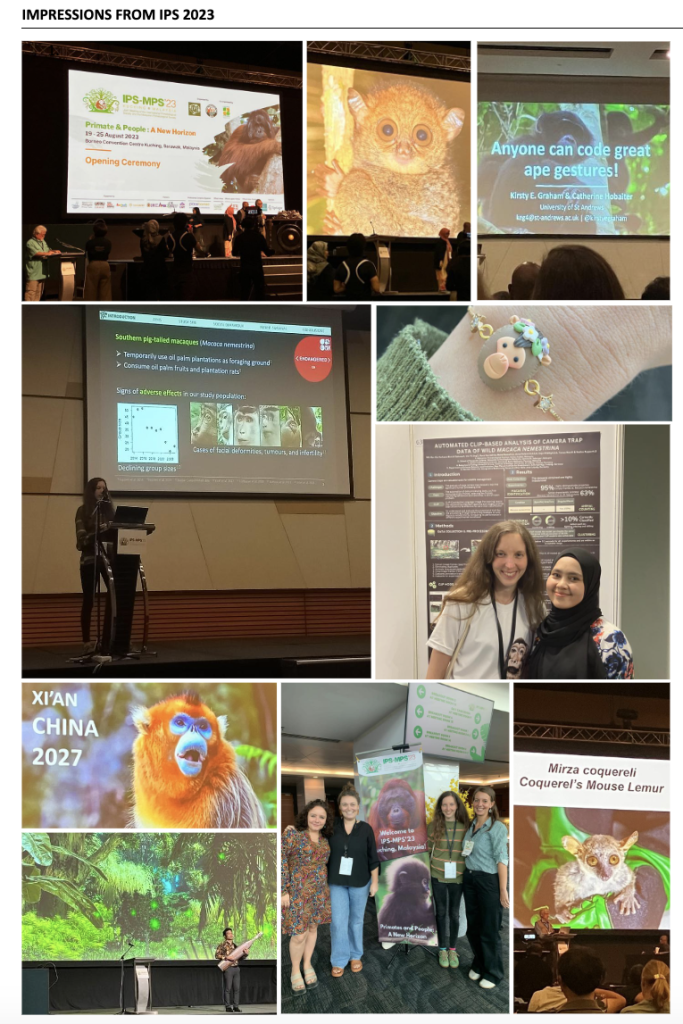Sign up to our newsletter
Subscribe to our wild news! We'll send you a summary of the latest articles. Keep an eye on your inbox!
Not Available

Closely collaborating with Universiti Sains Malaysia and the Macaca Nemestrina Project (MNeP) led by Dr. Nadine Ruppert, I have been working with Malaysian primates for almost ten years. My work primarily focuses on providing comprehensive insights into the ability of southern pig-tailed macaques to adapt to and survive in landscape mosaics of rainforest and oil palm plantations.
I am very grateful to the Malaysian Primatological Society for awarding me a travel grant to attend the International Primatological Society (IPS) conference held in Kuching from August 19 to 25, 2023, as this provided a remarkable opportunity to meet and learn from primatologists from around the world. In this report, I will share the key take-home messages and experiences from the conference:
1. Engaging sessions and inspiring talks: The conference program featured an extensive array of captivating talks and dynamic sessions. Particularly enlightening were the various workshops that delved into cutting-edge methodological advancements, including creative approaches for primate video data collection and the integration of artificial intelligence for individual recognition of wild primates, among other topics. Another highlight was the discussion of the list of the 25 most endangered primates, shedding light on the most imminent threats and challenges primates face globally.
2. Networking opportunities: Throughout the event, from the opening reception to the breaks and lunch, here were opportunities for numerous memorable encounters with esteemed peers. Reuniting with colleagues I had not seen in nearly a decade was a highlight, and it was fascinating to learn how their research has evolved since we first met during the initial phase of my work as a primatologist. These encounters extended beyond reunions: I also had the chance to meet and interact with remarkable researchers, facilitating exchanges of ideas regarding future research endeavors and data collection methodologies.
3. Challenges encountered: The main challenge I encountered during this conference was, beside the “arctic” temperatures in the conference venue, the difficulty of choosing only one of six concurrent presentations, as all of them were highly interesting. Nevertheless, the availability of session recordings, thanks to the hybrid format, is a great asset, allowing attendees to catch up on missed presentations later on.
Having studied the Malaysian pig-tailed macaque since 2014, I am passionate about advancing the field of primatology in this region. Collaborating with our local fellow primatologists in Malaysia as well as international researchers, our collective aim is to conduct comprehensive studies on Malaysia’s unique primate species, fostering knowledge exchange, and contributing to our understanding of these primates’ behaviour, ecology, and conservation needs. We are committed to working closely with local authorities, non-governmental organizations, and communities to raise awareness about the importance of primates in Malaysian ecosystems, to inspire the next generation of primatologists and conservationist, and to promote primate conservation and habitat protection in Malaysia.
Overall, my attendance at the IPS conference in Kuching was an enriching experience that has inspired me to further contribute to the field of primatology in Malaysia. I am enthusiastic about implementing the lessons learned and connections made during the conference to further my vision for the advancement of primatology in this region.

Subscribe to our wild news! We'll send you a summary of the latest articles. Keep an eye on your inbox!
Copyright © 2020. Malaysian Primatological Society | Designed by Celine Ng